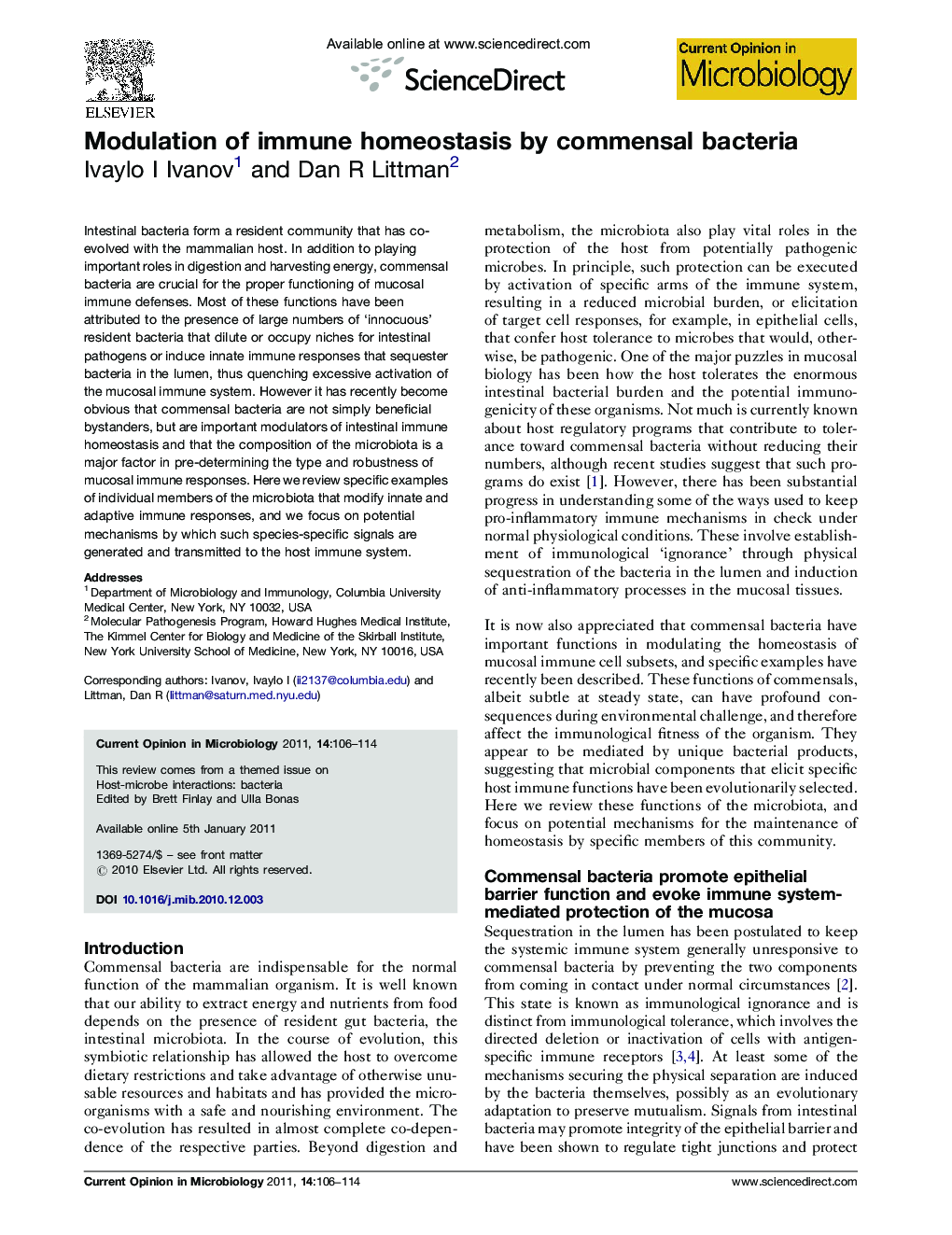| Article ID | Journal | Published Year | Pages | File Type |
|---|---|---|---|---|
| 3399110 | Current Opinion in Microbiology | 2011 | 9 Pages |
Intestinal bacteria form a resident community that has co-evolved with the mammalian host. In addition to playing important roles in digestion and harvesting energy, commensal bacteria are crucial for the proper functioning of mucosal immune defenses. Most of these functions have been attributed to the presence of large numbers of ‘innocuous’ resident bacteria that dilute or occupy niches for intestinal pathogens or induce innate immune responses that sequester bacteria in the lumen, thus quenching excessive activation of the mucosal immune system. However it has recently become obvious that commensal bacteria are not simply beneficial bystanders, but are important modulators of intestinal immune homeostasis and that the composition of the microbiota is a major factor in pre-determining the type and robustness of mucosal immune responses. Here we review specific examples of individual members of the microbiota that modify innate and adaptive immune responses, and we focus on potential mechanisms by which such species-specific signals are generated and transmitted to the host immune system.
